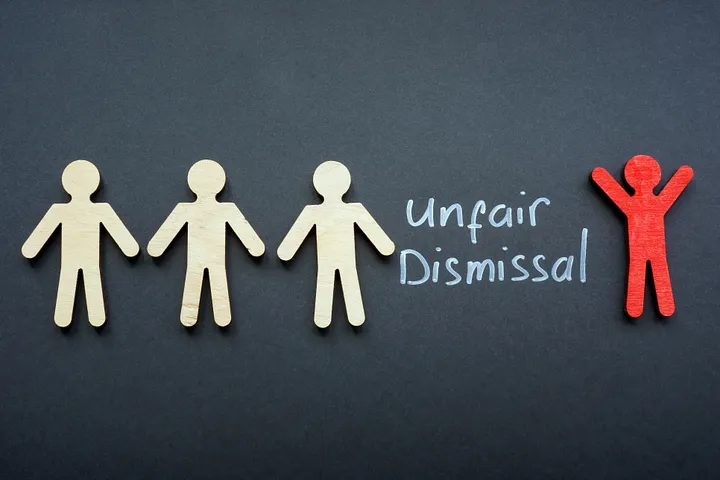Let’s be frank, having to let someone go is one of the most challenging parts of our job. We’ve all been there. It’s a situation fraught with legal, emotional and organisational minefields. The days of a cold, impersonal letter and a brief, uncomfortable meeting are long gone; or at least, they should be. Today, handling dismissals correctly demands fairness, absolute clarity, and a level of humanity that speaks volumes about your company culture. Get it wrong, and a simple dismissal can very quickly escalate into an unfair dismissal claim, bringing with it legal battles, financial penalties, and a stain on your reputation that is difficult to wash away.
Getting to Grips with Unfair Dismissal: Why It’s Non-Negotiable
So, what are we talking about exactly? Unfair dismissal occurs when an employee’s contract is ended without a legitimate reason or, critically, without following the correct, fair procedure. UK employment law is quite clear on this: your staff have a right to be treated fairly from the day they walk through the door. This isn’t just bureaucratic red tape; it’s a fundamental principle. Your people deserve respect, and the credibility of your entire organisation rests on upholding that.
A fair process is far more than a box-ticking exercise. It means you must establish a valid reason for the dismissal, have the evidence to back it up, follow a recognised procedure, and give the employee a genuine opportunity to respond. If you cut corners, you’re not just inviting legal trouble; you are actively undermining the very values you claim to have.
The Red Lines We Can’t Afford to Cross
Certain dismissals are considered “automatically unfair” by tribunals, no matter the surrounding circumstances. These are the statutory red flags that every single manager and HR professional must be able to recognise instantly:
- Membership of (or activity in) a trade union
- Acting as a whistleblower by raising a protected disclosure
- Anything related to pregnancy or taking maternity leave
- Raising legitimate health and safety concerns
- Carrying out civic duties, such as jury service
And here is the crucial takeaway: for these protections, there is no minimum service period. An employee is covered from their very first day. The responsibility to act fairly is on you from the moment they are hired.
What Actually Constitutes a Fair Dismissal?
UK law specifies five potentially fair reasons for dismissing someone. To be clear, each one requires a robust justification and a meticulously followed process:
- Conduct: This covers everything from persistent lateness to gross misconduct. Any dismissal for behavioural reasons must be supported by solid evidence and a clear record showing the individual was given a chance to improve (unless it’s gross misconduct, of course).
- Capability: If an individual genuinely can’t do their job due to skill gaps, ongoing ill health, or not having a required qualification, you must demonstrate that you provided reasonable support before reaching the point of dismissal.
- Redundancy: Remember, redundancy is about the role, not the person. If a position is no longer needed and you follow the correct and fair consultation process, a dismissal can be considered valid.
- Statutory Restriction: This is when continuing to employ someone would break the law, for example, if a professional driver loses their licence. The situation becomes legally impossible.
- Some Other Substantial Reason (SOSR): This is a broad category for exceptional cases, such as a major conflict of interest or significant reputational risk. Be warned; it’s a high bar to clear and not a simple catch-all solution.
Your Practical Playbook for Fair Dismissals
Steering clear of an unfair dismissal claim isn’t simply about building a legal defence; it’s about weaving integrity into the fabric of your organisation. Here’s how you get it right:
● Follow a Structured, Fair Process
Good intentions mean nothing without a rigorous approach. What does a fair process look like? It must include:
- A thorough and impartial investigation
- Clear written communication outlining the issue
- A formal meeting where the employee can state their case
- The right to an appeal
This isn’t pointless bureaucracy. It is fundamental due process that protects everyone involved.
● Equip Your Line Managers
Your managers are on the front line, shaping your culture with every interaction. Are they properly trained not just on policy, but on how to manage these conversations with empathy and fairness? Performance management is a core leadership skill, not an inconvenient side-task.
● Communicate Early and Often
Frankly, no dismissal for performance or conduct should ever come as a complete surprise. Regular one-to-ones, clear and constructive feedback, and documented objectives are your strongest allies. When people know exactly where they stand, you prevent the kind of shocks that fuel tribunal claims.
● Stay Absolutely Consistent
Inconsistency is a gift to a claimant’s solicitor. If you treat two employees in similar situations differently, you open yourself up to accusations of bias or prejudice. You must have clear internal standards to ensure every case is handled equitably.
● Always Consider Alternatives First
Dismissal should always be the final step in a long road, not the first reaction. Have you genuinely explored mediation, a change of role, extra training, or coaching? Often, the right conversation at the right time can steer things in a completely new direction.
It’s Not Just Compliance, It’s Your Culture
Unfair dismissal is more than a legal phrase; it’s a litmus test of your leadership and your organisation’s character. Navigating these difficult moments with dignity and procedural fairness doesn’t just shield you from expensive claims. It builds trust, reinforces loyalty, and cultivates a workplace reputation that people want to be part of.
In the current working world, how you say goodbye tells people as much about your organisation as how you say hello. A dismissal isn’t just a management task to be ticked off a list; it is a defining moment where you prove your company’s values, even when it’s hard.






